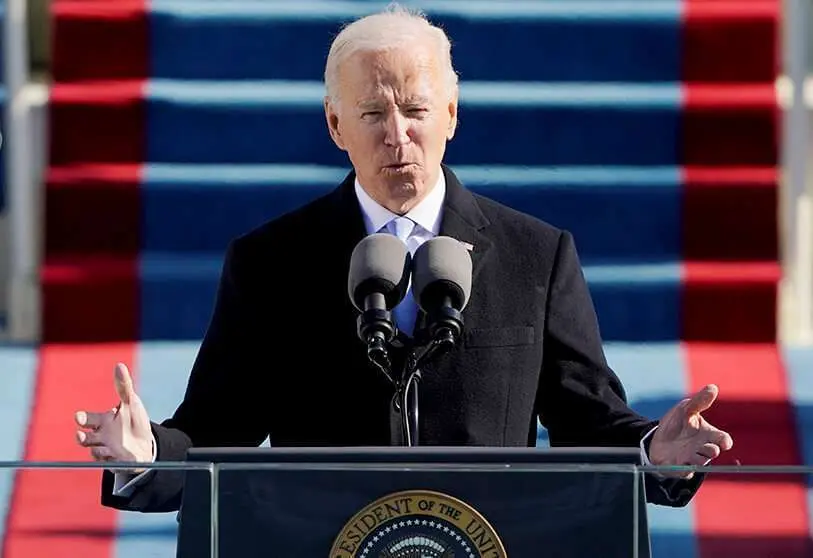Biden, rhetoric and pragmatics

Biden, in order to convey hope to a divided and anguished America and a confined world, did all the honours and gestures to American history. He pronounced almost all the political terminology of a democracy, so that no one felt left out of his new project that begins by trying to get Americans to understand each other again instead of continue to hate each other. "Disagreement cannot lead to disunity," he said. He used the full list of words of a classic inaugural address. Emotional, even more so after this turbulent year, and conventional, though the atmosphere was cold and the proceedings unusual, with the outgoing president absent. He understood the timing of the speech and the environment in which he had to deliver it: critical, anguished and disheartening. He used the American rhetorical manual and the formula, so often tried and tested, worked. The world is more hopeful today, politics is more reliable and democracy, to paraphrase William Faulkner in his reference to human beings when he received the Nobel Prize, will not only endure, but prevail.
All attendees in masks. 25,000 National Guard soldiers. An atmosphere of relaxed tension. Vice-President Pence, the Supreme Court and the Congressmen. All warm and protected. But when Lady Gaga began to sing the American anthem, "democracy is precious but fragile ", had won. As a Catholic and liberal as Joe Biden is, he referred in his inaugural speech as the 46th President of the United States to love, kindness and social justice. But Lincoln's reference to the unity of the nation was the most moving and repeated of the quotes: “If my name ever goes down into history it will be for this act and my whole soul is in it [...] bringing America together”.
"Our country will be stronger"; "We will repair our alliances and engage with the world once again"; "We will lead not merely by the example of our power but by the power of our example". President Biden assured his countrymen and an international society that has celebrated the Americans' return to the international order. The first thing he did when he sat down in his White House office was to sign the United States' re-entry into the Paris Climate Agreement and the second to remove limitations on the entry of citizens of certain countries into US territory.
But Biden's world is not yesterday's world. That is the title of Zweig's luminous essay on Europe's past decline. Biden's world, he said, is today's world. In which China is a rival power, not an emerging one as it was. Russia is an active power, not a passive one as it appeared to be. The Mediterranean is a geostrategic region and not a border. And truth, a non-existent commodity that has been replaced by another concept, falsehood.
The world that the 46th president of the United States wants to rebuild does not harbour a firm belief in human rights, though Joe Biden does. It is not committed to diplomacy and moderation, though Biden is. He does not trust multilateralism, while President Biden does. In his speech to a cold, ageing, but still hopeful audience, the veteran Democratic politician took a leaf out of the handbook of the values of American democracy. Now, with his experienced, centrist foreign policy team, he has to translate those values into the reality of a world in disarray. In the old chest of American political philosophy, the president is sure to find a concept that is still relevant today: pragmatism.

